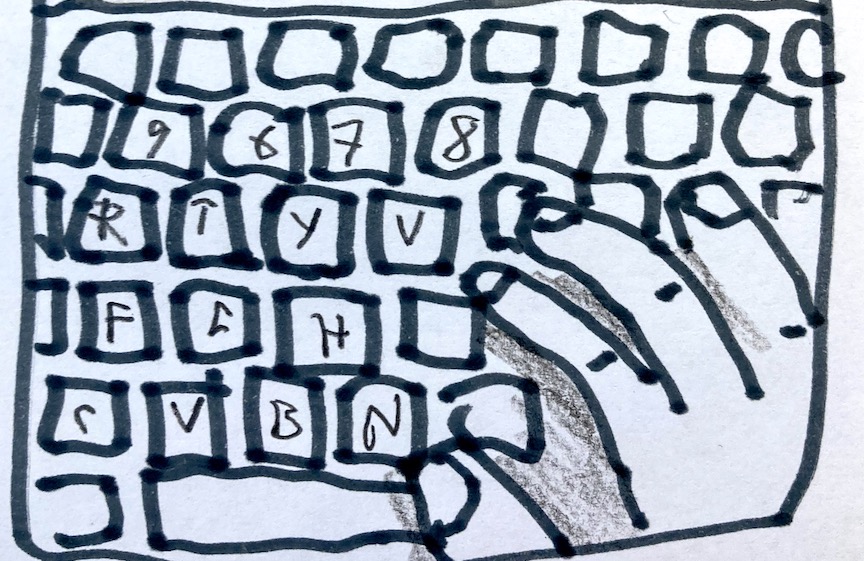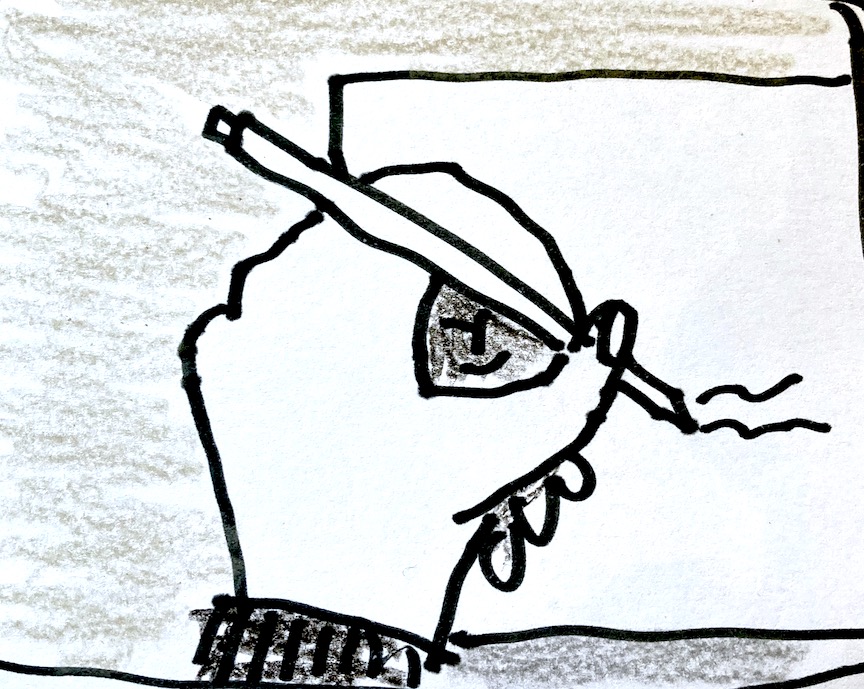Journalism As A Training For... What?
It can’t just be typing.
The fast pace of journalism can leave a troublingly short attention span.
Earlier today I was reading a story by a British journalist – a woman, can’t recall her name – for a big American magazine, The Atlantic.
She was writing a light-hearted polemic about the ways in which journalists are not ideally suited to be politicians.
I was both delighted and annoyed because I’d been thinking of writing something similar.
Her central figure was Boris Johnson, though she threw in a certain amount about (I think) a journalist from the New York Times who is running for office somewhere, and about somebody connected to Fox News who (again, I think) got heavily involved in campaigning for Donald Trump.
Hi, I’m John-Paul Flintoff and this is my newsletter, Write Like a Human.
You might be wondering why I don’t just look up the details, instead of writing that I don’t recall her name, and writing “I think”.
Well, it's because I’m creating an audio recording of my typing, just to hear what it sounds like.
I don’t want to stop, go off to Google, get lost in there, and so on.
Happily, right this second I remembered that her name is Helen Lewis, and she used to write for (or possibly edit? deputy edit?) the New Statesman.
Question: So, what was I planning to write about journalism and politics?
Answer: I was going to write something about the way that working for years as a journalist can make you very fast, and can help you to type as quickly as (I guess) this audio recording will convey, with moments of rapid bashing as I bring together the command key and the backspace to withdraw a thought and type a new one in its place.

The downside is that journalism gives practitioners an extremely short memory.
We learn to think in brief intervals – as long as a month, on some magazines, or a week, or just a day.
When I was working as a sub-editor on The Guardian, I’d come into the office at lunch, by which time writers and photographers had done much of their work.
Words and pics would be sent to me (among other subs) and I’d pour them into the page assigned to me by an editor, then throw things around, including a headline and captions and pull-quotes.
I’d remove obvious errors (and less obvious ones, I hope), re-write stuff a bit, maybe have another go at the headline, pop to the trolley for a cup of coffee (there was a woman with a trolley, at about 4pm), and so on, until the whole thing was finished at something like 8pm.
Mostly, I worked on a section called G2, which was a tabloid pull-out from the broadsheet main paper.
It was like a mini-magazine, with things in it that are less newsy (agony column, food, crosswords) and longish features that tended to be at least a little newsy.
At the end of the day, the desks were all piled high with print-outs of page layouts, spattered with coffee and crumbs after being abandoned and re-done, with new headlines and picture captions and whatnot.
(I do like that word: whatnot.)
The next day the desks were completely clear.
I have no idea who removed the papers. All I know is that every day felt like a fresh start. Our past no longer existed.
We’d already read today’s paper, yesterday.
And we looked ahead no further than tonight’s printing deadline.
So much for subbing. What about writing?
Well, as a writer I focused only on my next deadline. I didn’t do anything, very much, unless there was a deadline.

Naturally, I did have some kind of list, somewhere, of stories I might like to do at some point in the future.
But the trouble with those stories is that they’re rarely of interest to an editor, later, when the news agenda and the public mood have shifted.
So I held fairly lightly to them, and my already strong tendency to take up new things enthusiastically was made even stronger.
As soon as I was commissioned to write about something, even something I knew little about, I could become utterly absorbed by it.
I’m me. You’re you. He and she are them.
I can speak only for myself, and how working as a journalist affected me.
But as I watch Boris Johnson I wonder if years of writing something to please an editor and a wider, broadly sympathetic readership has been fatally harmful.
He seems to be somebody who is brilliant at putting a gloss on NOW, and urging us to move on.
I don’t see the strategy. I don’t see him sticking to something he passionately believes in. I see a man who – like me – has been moulded by journalism.
I wonder if there’s any academic research into this?
I look at the timer on my iPhone voice recorder. I’ve been typing for 19 mins and 55 secs. I press pause. And breathe out heavily, as if I’ve been holding my breath all this time.
I’m not going to re-read this (for now, anyway). I’m just going to post it. And share it to social media etc. Then I’ll put out the audio as my next podcast.
Thank you to M.S., for the suggestion that I record the sound of my typing.
Till next time.
JPF
Add a comment: